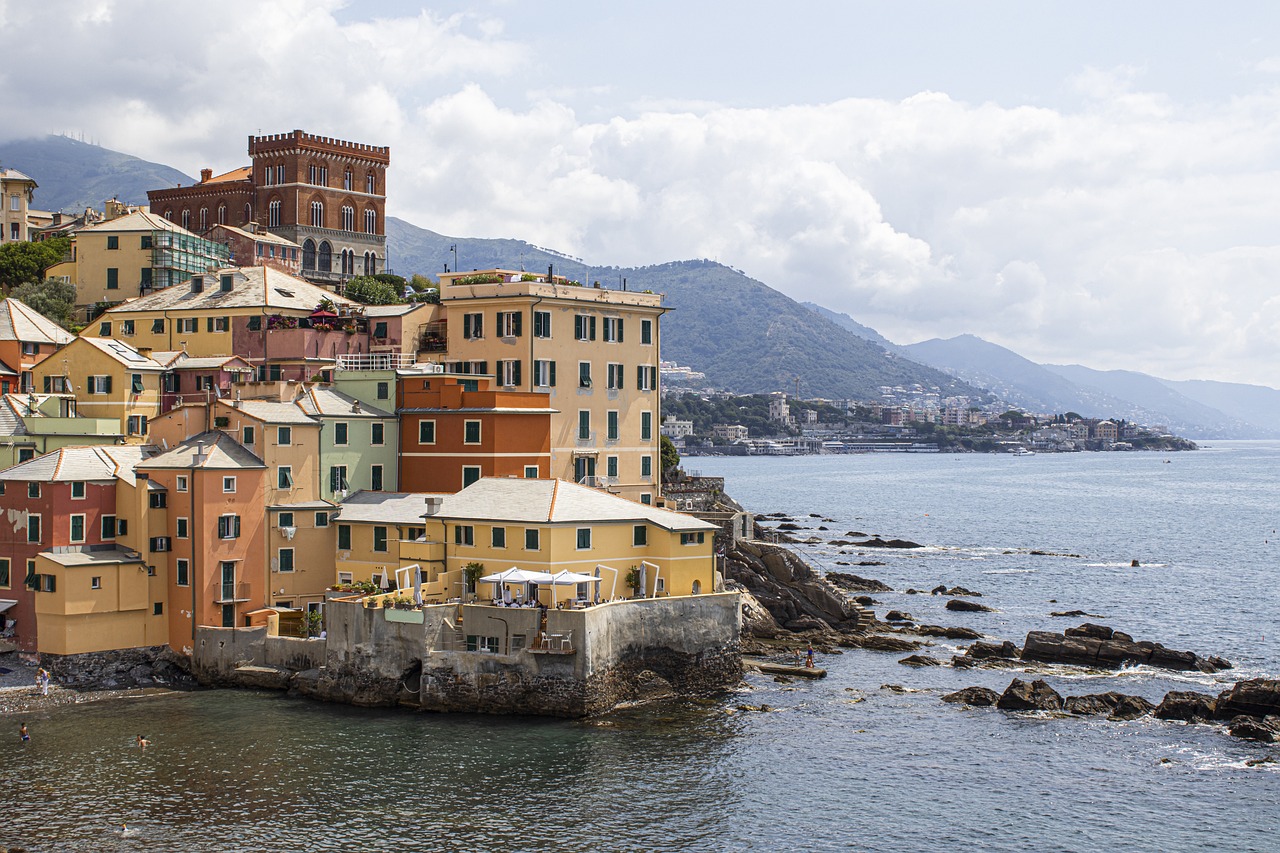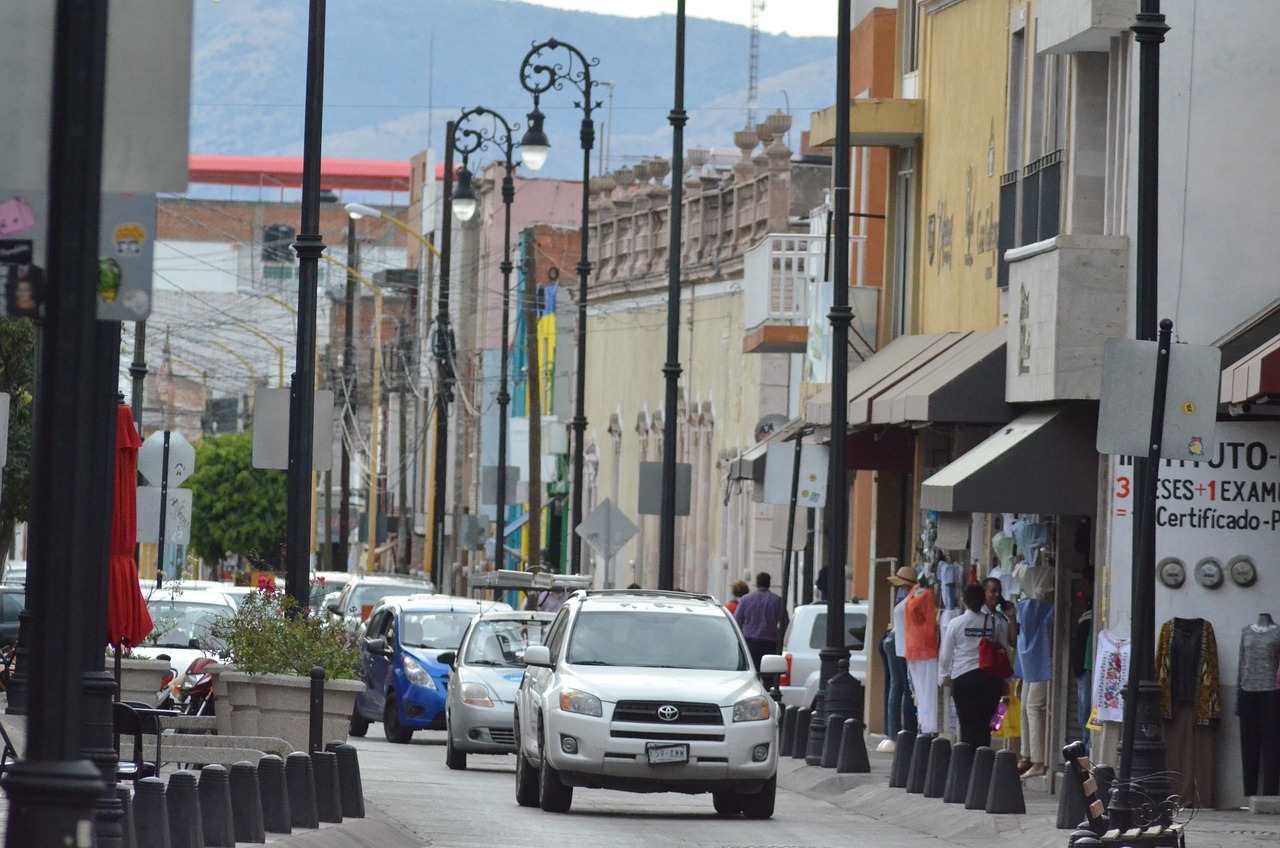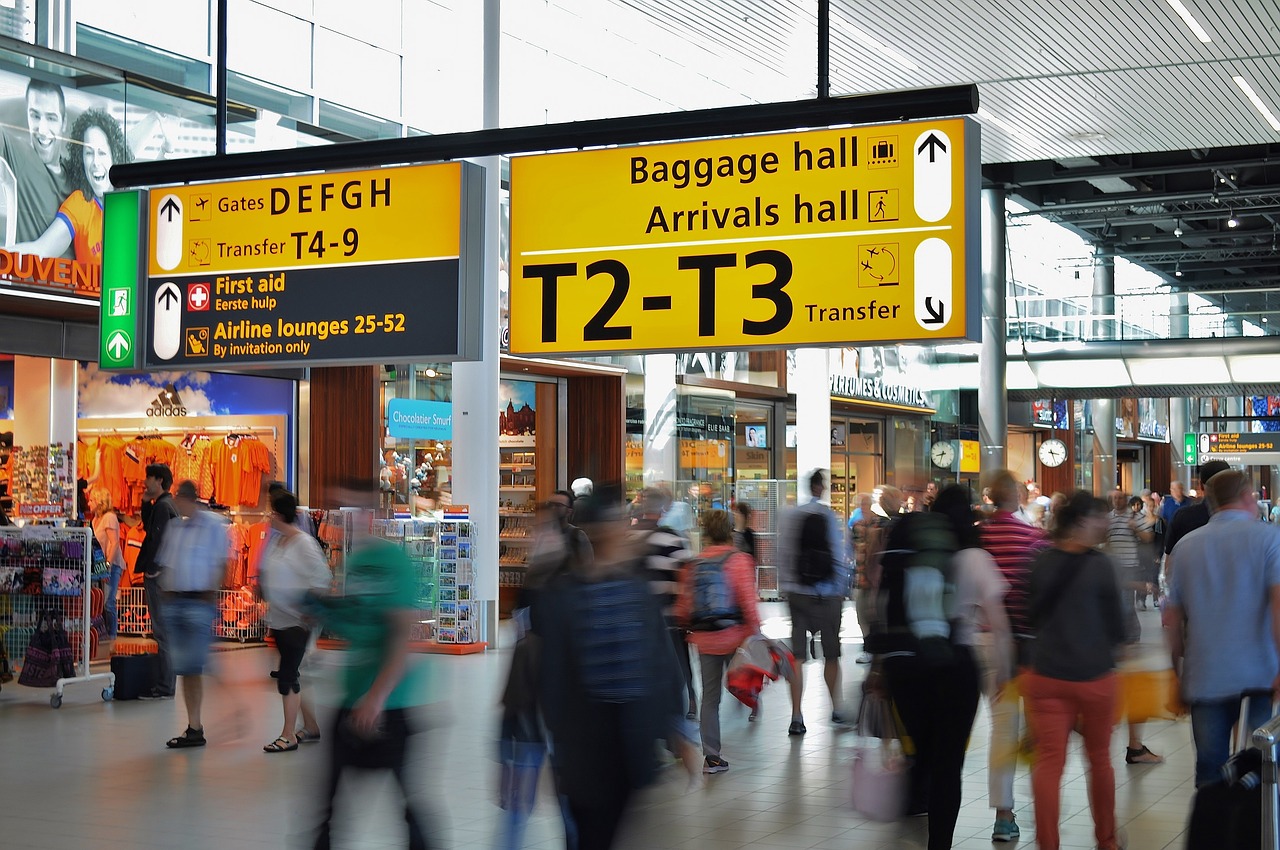The rise of remote work has transformed how professionals live, work, and travel, with 2025 marking a pivotal year for digital nomads seeking to combine career flexibility with global exploration. The European Union’s updated visa regulations, particularly the expansion of digital nomad visa programs across member states, have opened new opportunities for remote workers to legally reside and work in some of the world’s most desirable destinations. These new rules, designed to attract skilled remote workers while boosting local economies, emphasize streamlined application processes, favorable tax structures, and extended stay durations. This article explores the best destinations for remote workers in 2025, focusing on countries with updated visa policies, robust infrastructure, and vibrant lifestyles that cater to the digital nomad community. From Mediterranean coastlines to tropical paradises, these locations offer the perfect blend of work and adventure.
The Evolution of Digital Nomad Visas in 2025
The concept of digital nomad visas gained traction post-COVID-19, as countries recognized the economic potential of attracting remote workers who bring stable incomes without competing for local jobs. In 2025, the EU has significantly expanded its digital nomad visa offerings, with over 15 member states now providing tailored programs. These visas differ from traditional tourist or business visas by offering legal work status, longer stays (typically 6 months to 5 years), and often tax incentives. Key eligibility criteria include proof of remote employment, a minimum income threshold, valid health insurance, and a clean criminal record. The EU’s 2025 visa updates also prioritize family inclusion, faster processing times (some as quick as 30 days), and pathways to permanent residency in select countries. Beyond Europe, other global destinations have also refined their visa programs to compete for remote talent, creating a diverse array of options for digital nomads.
This article highlights 10 top destinations for remote workers in 2025, with a focus on EU countries leveraging new visa rules and a few standout non-EU locations offering exceptional opportunities. Each destination is evaluated based on visa accessibility, cost of living, internet reliability, lifestyle appeal, and cultural immersion potential.
Top European Destinations for Remote Workers
- Portugal: Affordable European Charm with Tax Benefits
Portugal remains a top choice for remote workers, thanks to its D7 and D8 Digital Nomad Visas, which have been streamlined for 2025. The D7 visa requires a monthly income of €3,280, while the D8 offers a temporary stay option for one year, renewable up to five years. A standout feature is the Non-Habitual Resident (NHR) program, which provides a 20% flat tax rate on certain income types or a six-month tax-free period for foreign earnings. Lisbon and Porto offer vibrant coworking scenes, high-speed internet (averaging 100 Mbps), and a thriving expat community, while the Alentejo region provides a quieter, affordable alternative with medieval villages and vineyards. Portugal’s low cost of living—approximately €2,000/month for a comfortable lifestyle—combined with its sunny climate and proximity to beaches, makes it ideal for work-life balance. The 2025 visa updates also allow family members to join, enhancing its appeal for nomads with partners or children.
- Spain: Vibrant Culture with a Game-Changing Tax Break
Spain’s Digital Nomad Visa, launched in 2023 and refined for 2025, is one of Europe’s most attractive options due to its low tax rate of 15% for the first four years under the Beckham Law. With a monthly income requirement of €2,646, it’s accessible to many remote workers. The visa is initially valid for one year, renewable up to five years, and includes family members. Cities like Barcelona and Madrid offer world-class infrastructure, with internet speeds averaging 150 Mbps and abundant coworking spaces. The Mediterranean lifestyle, coupled with a cost of living around €2,500/month, provides an inspiring backdrop for remote work. Spain’s 2025 visa updates have reduced bureaucratic hurdles, with applications processed in as little as 30 days. For those seeking quieter settings, Valencia or the Canary Islands offer affordable living and stunning natural beauty.
- Croatia: Tax-Free Coastal Living
Croatia’s Digital Nomad Residence Permit is a gem for remote workers, offering zero local income tax on foreign earnings. With a modest income requirement of €2,300/month, the visa allows a one-year stay, renewable after a six-month gap. Dubrovnik and Split combine medieval charm with modern amenities, including reliable internet (100 Mbps) and a growing nomad community. The cost of living, around €1,800/month, is lower than in Western Europe, making Croatia a budget-friendly Mediterranean option. The 2025 updates simplify the online application process, and Croatia’s recent EU membership enhances travel convenience across the Schengen Area. Its stunning coastline and island-hopping opportunities make it perfect for nomads seeking a vacation-like work environment.
- Greece: Affordable Mediterranean Paradise
Greece’s 2025 visa updates have lowered the income requirement to €2,000/month, making it one of Europe’s most accessible digital nomad programs. The visa, processed in just 30 days, allows a one-year stay, extendable to two years. Athens offers a blend of ancient history and modern tech hubs, with internet speeds of 80 Mbps, while islands like Crete or Rhodes provide serene work settings. The cost of living, around €1,500–2,000/month, is lower than in Spain or Portugal, and Greece’s English-speaking environment eases integration. The Mediterranean diet, vibrant culture, and year-round sunshine make Greece a top pick for nomads seeking affordability and lifestyle.
- Estonia: Tech-Savvy Pioneer
Estonia, the first country to introduce a digital nomad visa, continues to lead with its tech-forward infrastructure. The 2025 visa requires a monthly income of €3,504 and offers a one-year stay. Tallinn’s medieval charm meets cutting-edge technology, with nationwide internet speeds averaging 200 Mbps and free coworking spaces. The cost of living, around €2,000/month, is reasonable for Western Europe, and foreign income is tax-free for stays under 183 days. Estonia’s e-Residency program allows nomads to run businesses online seamlessly, making it ideal for tech entrepreneurs. The 2025 updates streamline the digital application process, ensuring quick approvals.
- Malta: English-Speaking Mediterranean Hub
Malta’s Nomad Residence Permit, updated for 2025, requires a monthly income of €3,500 and offers a one-year stay, renewable up to four years. As an English-speaking nation, Malta eliminates language barriers, making it ideal for American and British nomads. Valletta’s UNESCO heritage sites and modern coworking spaces, coupled with internet speeds of 90 Mbps, create a productive environment. The cost of living, around €2,200/month, is competitive, and Malta’s proximity to Italy and Greece facilitates weekend travel. The 2025 visa updates include simplified family applications, enhancing its appeal for nomads with dependents.
- Hungary: Affordable Central European Base
Hungary’s White Card Visa, updated for 2025, requires a monthly income of €3,000 and offers a one-year stay, renewable annually. Budapest’s vibrant startup scene, thermal baths, and affordable living (around €1,500/month) make it a hidden gem. Internet speeds average 120 Mbps, and the city’s central location enables easy travel across Europe. The 2025 updates include a “Guest Investor” option, expanding opportunities for entrepreneurs. Hungary’s six-month tax-free period for foreign income adds financial appeal, making it a budget-friendly choice for nomads seeking cultural richness.
Top Non-EU Destinations for Remote Workers
- Costa Rica: Pura Vida and Tax-Free Income
Costa Rica’s Rentista Visa, updated for 2025, accepts remote employment with a monthly income requirement of $3,000 for individuals or $5,000 for families. The visa offers a two-year stay, renewable, with no local tax on foreign income. San José provides urban amenities, while beach towns like Tamarindo offer tropical work settings. Internet speeds average 70 Mbps, and the cost of living is around $1,800/month. Costa Rica’s political stability, excellent healthcare, and eco-tourism opportunities make it a top choice for nature-loving nomads. The 2025 updates simplify documentation, making the application process more accessible.
- Dubai, UAE: Tax-Free Luxury
Dubai’s Virtual Working Program, refined for 2025, requires a monthly income of $5,000 and offers a one-year renewable visa. With zero personal income tax, Dubai is a financial haven for high-earning nomads. The city boasts world-class infrastructure, with internet speeds exceeding 200 Mbps and abundant coworking spaces. The cost of living, around $3,500/month, is higher but justified by luxury amenities and global connectivity. The 2025 updates include faster online processing and family inclusion, making Dubai a premium choice for nomads seeking a cosmopolitan lifestyle.
- Thailand: Cultural Richness and Long-Term Stays
Thailand’s Long-Term Resident (LTR) Visa, updated for 2025, offers stays up to 10 years for high-income nomads (income requirements vary but are generally high). Cities like Chiang Mai and Bangkok provide established nomad communities, with internet speeds of 100 Mbps and a low cost of living (around $1,500/month). Thailand’s rich culture, affordable food, and coworking hubs make it a favorite for long-term stays. The 2025 updates streamline applications for remote workers, though tax obligations require consultation due to varying regulations.
Key Considerations for Choosing a Destination
When selecting a destination, remote workers must weigh several factors:
Visa Requirements and Processing: EU countries like Greece and Spain offer faster processing (30 days), while others, like Italy, may require more documentation. Non-EU destinations like Costa Rica and Thailand have simpler applications but vary in duration and renewal options.
Cost of Living: Hungary, Croatia, and Greece offer lower costs (€1,500–2,000/month) compared to Dubai ($3,500/month). Budget-conscious nomads should prioritize Eastern Europe or Latin America.
Internet and Infrastructure: Estonia and Dubai lead with ultra-fast internet (200 Mbps+), while Costa Rica and Thailand offer reliable but slower connections (70–100 Mbps).
Tax Implications: Croatia, Costa Rica, and Dubai offer tax-free foreign income, while Spain and Portugal provide reduced rates. Always consult an international tax professional to avoid double taxation.
Lifestyle and Culture: Mediterranean countries like Spain, Greece, and Croatia offer beachside living, while Thailand and Costa Rica provide tropical vibes. Hungary and Estonia appeal to those seeking urban culture and tech ecosystems.
Challenges and Tips for Remote Workers
While digital nomad visas offer incredible opportunities, challenges remain. Visa requirements can be stringent, with income thresholds ranging from €2,000 to €7,500/month (e.g., Iceland). Healthcare access varies, with some countries requiring international insurance. Limited visa durations in places like Croatia (one year, non-renewable without a gap) necessitate long-term planning. Additionally, cultural adjustments and occasional bureaucratic hurdles, such as in Italy, require patience.
To succeed, nomads should:
Research visa requirements thoroughly and prepare documents like income proof and health insurance in advance.
Join local digital nomad communities for networking and support (e.g., Facebook groups in Lisbon or Chiang Mai).
Plan for tax obligations by consulting professionals familiar with international tax treaties.
Test internet reliability in chosen destinations, especially in rural areas like Alentejo or Costa Rica’s beach towns.
Balance work and exploration to maximize cultural immersion without compromising productivity.
Conclusion
The EU’s 2025 visa updates have made Europe a prime destination for remote workers, with countries like Portugal, Spain, Croatia, Greece, Estonia, Malta, and Hungary offering accessible visas, favorable tax structures, and vibrant lifestyles. Beyond Europe, Costa Rica, Dubai, and Thailand provide diverse alternatives, from tax-free luxury to tropical affordability. Each destination caters to different priorities—whether it’s low costs, fast internet, or cultural richness—allowing nomads to craft a lifestyle that blends work and adventure. By understanding visa requirements, planning for taxes, and choosing a destination aligned with their goals, remote workers can turn 2025 into a year of professional success and personal growth. Start researching your dream destination today, and let the world become your office.














